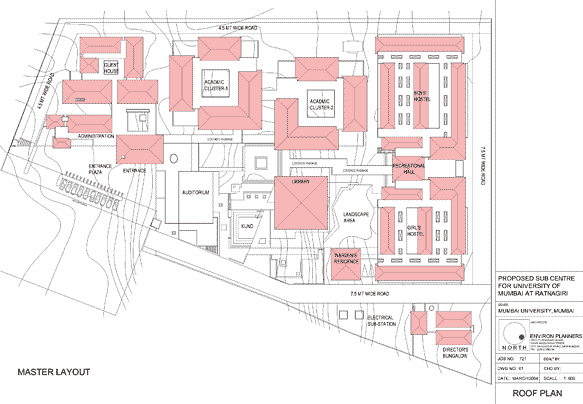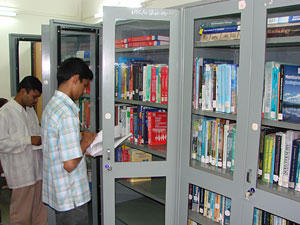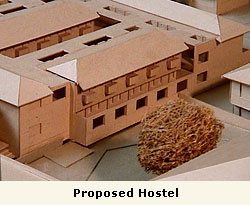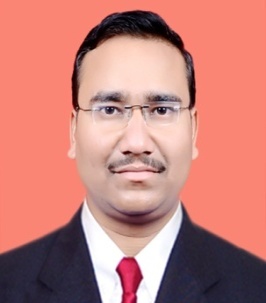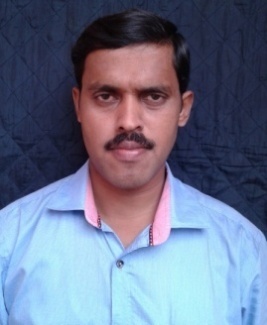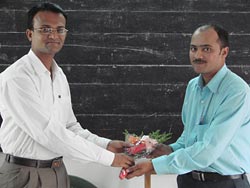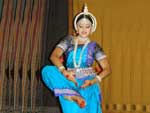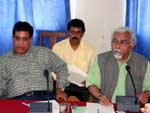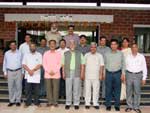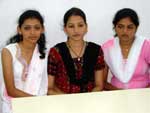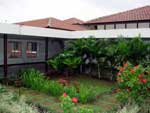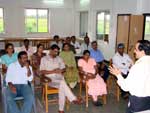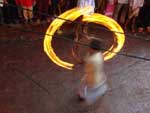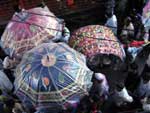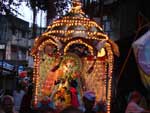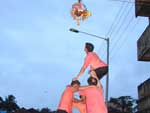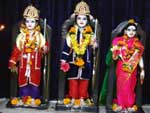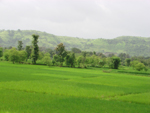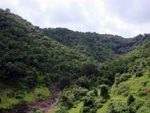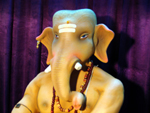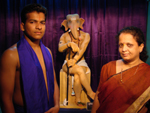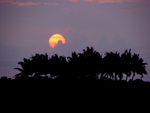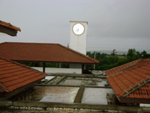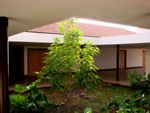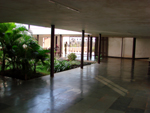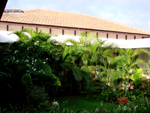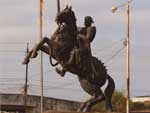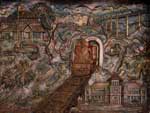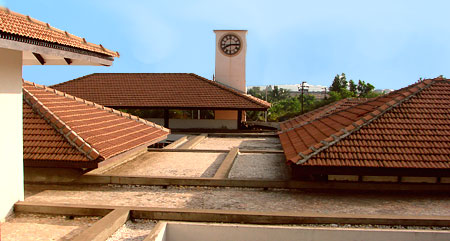 The University of Mumbai (known earlier as University of Bombay) is one of the oldest and premier Universities in India. It was established in 1857 consequent upon “Wood’s Education Dispatch”, and it is one amongst the first three Universities in India.
The University of Mumbai (known earlier as University of Bombay) is one of the oldest and premier Universities in India. It was established in 1857 consequent upon “Wood’s Education Dispatch”, and it is one amongst the first three Universities in India.
As a sequel to the change in the name of the city from Bombay to Mumbai, the name of the University has been changed from University of Bombay to University of Mumbai, vide notification issued by the Government of Maharashtra and published in the Government Gazette dated 4th September, 1996.
The profile of this University carved out in 150 years of its functioning attests to its manifold achievements as the intellectual and moral powerhouse of the society. The University has always given its best to the country in general and to the city of Mumbai in particular by enthusiastically shouldering an ever-growing load of social values and opportunities.
Initially, the University concentrated its efforts on controlling teaching at the undergraduate level and in conducting examinations. Later on it took up research and the task of imparting instructions at the Post-Graduate level. This resulted in the establishment of the University Departments beginning with the School of Sociology and Civics & Politics. The independence of the country led to the re-organization of the functions and powers of the University with the passing of the Bombay University Act of 1953.
Assessment and Accreditation Council (NAAC). It has two campuses of area 230 acres and 13 acres, with 1.25 million square feet of built-up area, 22 thousand sq. feet of class-rooms and 84 thousand sq feet of laboratory space. It has two post-graduate centers, 492 affiliated colleges, over 90 Institutions and 55 Post-graduate Departments. It has established its name in industrial collaborations and runs various professional courses.
At national level, it has excelled in sports, cultural and out-reach activities. In the last five years it has seen 104% increase in under-graduate students, 112% increase in post-graduate students and 147% increase in distance – education students. There is 156% increase in the number of research papers published in International journals. 12 Department/sections are recognized under various national programmes, such aInitially, the Sub-Centre was located in the premises of a B.Ed. College near Bus Stand. Later, it was shifted to Gogate-Joglekar College. A few Diploma Courses were initiated from here. The Academic activities of the Sub-Centre began when the Sub-Centre was shifted to Thibaw Palace and were inaugurated at the hands of Hon’ble Shri. Manohar Joshi, the then Chief Minister of Maharashtra on June 10, 1997. Beginning with the academic year 1997-98, all the student services and some need-based academic courses were offered by the University from the Sub-Centre.The University of Mumbai subsequently acquired 13 acres of land for Sub-Centre at Plot No. P-61, MIDC, Mirjole (Ratnagiri) and shifted its base into its own premises on February 15, 2005.s SAP/CAS/DRS/DSA/COSIST/FIST. More than 80 teachers are on various professional bodies. 18 National/International awards are won by teachers in the last five years. Every year about 40 teachers visit abroad for academic activities. Recently more than 20 self-supporting courses have been started by the University.
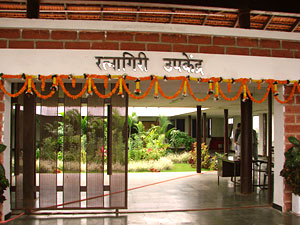 Visualising the need to cater academic and administrative services to the students of Konkan region, the University of Mumbai initiated an Administrative Sub-Centre at Ratnagiri on September 05, 1989. Initially the main purpose of the Sub-Centre was to decentralise some of the student services. Due to the constraint of space, expansion of student services as also introduction of courses could not be realised.
Visualising the need to cater academic and administrative services to the students of Konkan region, the University of Mumbai initiated an Administrative Sub-Centre at Ratnagiri on September 05, 1989. Initially the main purpose of the Sub-Centre was to decentralise some of the student services. Due to the constraint of space, expansion of student services as also introduction of courses could not be realised.
Initially, the Sub-Centre was located in the premises of a B.Ed. College near Bus Stand. Later, it was shifted to Gogate-Joglekar College. A few Diploma Courses were initiated from here. The Academic activities of the Sub-Centre began when the Sub-Centre was shifted to Thibaw Palace and were inaugurated at the hands of Hon’ble Shri. Manohar Joshi, the then Chief Minister of Maharashtra on June 10, 1997. Beginning with the academic year 1997-98, all the student services and some need-based academic courses were offered by the University from the Sub-Centre.The University of Mumbai subsequently acquired 13 acres of land for Sub-Centre at Plot No. P-61, MIDC, Mirjole (Ratnagiri) and shifted its base into its own premises on February 15, 2005.
Thoughts & Vision
Thoughts:
Institutional Campus is a place where a student is confronted with realties of living and working with other people in an environment that provides wide verities of conditions for the best kind of relationships. It sets a stage for the time when a student enters the mainstream of life, bears his own responsibilities and makes his contribution to the society. It is nothing but an extension of man’s life and values.
Institutes are the primary design elements in creating an environment, society nourishes on them. The University is a community where the student is guided in the first stage of a lifelong task of self education, a community where concem is not just with the pursuit of learning but with the fulfillment of lives.
The University is a community where the student is guided in the first stage of a lifelong task of self education, a community where concern is not just with the pursuit of learning but with the fulfillment of lives. The Ratnagiri Sub-Centre is continuing endeavours of the University of Mumbai, to provide education that sharpens the intellect, improves the grasping power and develops the faculty of discrimination, and thus protects all of us from falling into errors.
Vision:
The mission of the Ratnagiri Sub-Centre of the University of Mumbai is to advance knowledge and educate students in Science, Technology, and other areas of scholarship that will best serve the nation and the world in the 21st century.
History of Ratnagiri
HISTORY OF RATNAGIRI SUB-CENTRE
The Ratnagiri Sub-Centre was established on September 05, 1989 within the premises of B.Ed. College, Opposite S.T. Stand, Ratnagiri. The primary objective of the Sub-Centre was to cater to the administrative needs of all the affiliated Colleges/ Institutions of the University of Mumbai located in Ratnagiri and Sindhudurg Districts. The Sub-Centre was relocated in Gogate and Joglekar College and then at the Thebaw Palace, Ratnagiri. The Academic activities of Sub-Centre were initiated from the Thebaw Palace, and the facility was inaugurated by Hon’ble Shri. Manohar Joshi, the then Chief Minister of Maharashtra on June 10, 1997. Dr. (Mrs.) Snehalata Deshmukh was Vice Chancellor of the University then. Thus, from the academic year 1997-98, the Sub-Centre started offering all the student services and some need-based academic courses. From 2002, the Sub-Centre initiated the first Post-graduate Degree Course (in Environmental Sciences) of the University.
During the tenure of the then Vice Chancellor of University of Mumbai, Prof. Dr. Bhalchandra Mungekar, the University of Mumbai acquired 13 acres of land (which was kindly made available by the Government of Maharashtra at concessional price) for the Sub-Centre at MIDC, Mirjole (Ratnagiri). Before shifting its base into its own premises on February 15, 2005, the Ratnagiri Sub-Centre operated all its academic and administrative activities from the Premises of the Finolex Academy of Engineering and Management, located in MIDC, Mirjole for about a year (2003-2004).
Today, the Ratnagiri Sub-Centre offers various courses (both, full time such as Masters, M.Phil. and Ph.D. programmes; and that of distance mode, at graduate level), the details of which are provided elsewhere, on this Website.
Location & Accessibility
LOCATION
Ratnagiri District is a paradise un-touched by new culture. It is a land as beautiful as its people who are simple, soft spoken, easy going and hospitable. Adventurous travellers, holiday makers and nature lovers are drawn to this beautiful paradise.
The scenery of this District has been shaped by a happypartnership of geography and civilization. It has green hills, deep valleys, and emerald green paddy fields. There are a number of stunning beaches. There is something special for every one to enjoy and discover. It has its own specialty of summer fruits like Alphonso Mango, Kokam, Jackfruit, Cashewnut, Jamun, etc. There is a regional speciality-Konkani food, made from rice, fish and coconut. It has a wide variety of wild life, vegetation and birds. District place of Ratnagiri district is Ratnagiri Town. The District covers an area of 8208 sq.km.
Weather of Ratnagiri fluctuates between 15 Degrees Celsius to 33 Degrees Celsius. Sea breeze is enjoyable nearly throughout the year.
Distance:
From Mumbai (via Chiplun): 325 km
From Pune (via Chiplun): 345 km
General Information:
Latitude:15° 36′ and 18°05’N
Longitude: 73° 05′ and 74° 36’E
Population: 1544057(1991 Census)
Climate: Tropical
Clothing: Cotton Clothes
STD code: 02352
Awards & Achievements
Awards and Achievements
During the last Academic Year, accomplishments of Ratnagiri Sub-Centre were not exceptional, but certainly noteworthy and inspiriting. They are highlighted below:
Campus Recruitment (2006-2007 Batch):
During the last academic year (2006-2007), Final Year Students of the Organic Chemistry and Environmental Sciences Degree Programmes were subjected to Campus Interviews for the first time. A few Industries also invited these students for screening and recruitment at their Campuses.
It is noteworthy that success rate for Organic Chemistry Students this year was 100 per cent and for the Students of Environmental Sciences was 30 per cent (about 45 percent Students opted for further Education after M.Sc.).
Academic Accomplishment (Student Category):
Mr. Pandurang Patil an Alumnus of Ratnagiri Sub-Centre (2005-2006 Batch of Environmental Sciences) qualified for the State Eligibility Test (SET) conducted by the Govt. of Maharashtra.
Initiation of New Academic Programmes (2007-2008):
It is heartening to note that the Academic Council of the University of Mumbai approved initiation of various Degree Courses, from the current Academic Year (2007-2008). They are:
- M.Sc. Degree (by Papers) Course in Analytical Chemistry, Physical Chemistry and Inorganic Chemistry; and
- M.Phil. and Ph.D. Programmes in both, Environmental Sciences and Chemistry.
The Sub-Centre has initiated the process of developing Syllabus of M.Phil. Course (both in Environmental Sciences and Chemistry) and the Programme would be activated during 2008-2009.
Existing
Architectures vision:
Zoning – hierarchy of spaces:
The spatial development of the Campus reflects a subtle distinction between civic and private zones so as to respect the need and dignity of each space and allow a smooth transition from public to more intimate space.
Public Zone :
Administration and auditorium are near to the entrance for ease in accessibility to allow easy circulation in rest of the site, avoiding any disturbances to private zone.
Private Zone :
The student’s residential areas are away from the entrance and public areas as per the need of individual public/private zones.
Genesis of the Campus design :
- Response to the obvious.
- Response to the environment.
- Response to the subtle, invisible systems.
Master Layout
Expression :
- The relation between the physical requirement and the site conditions have given rise to the circulation pattern as indicated.
- The campus is spreaded primarily over ground surface and creates ease of movements of disables as well.
- Administrative, academic and residential zones are segregated and at the some time are integrated through open/semi-open spaces.
- Low-rise with high-density was a prime consideration during design development of the learning –living zones of the campus. This concept was supported by the
- M.I.D.C. bye-laws and air funnel restrictions.
- Hierarchy in the residential system is subtly maintained to avoid any obvious variations in the cluster and building forms.
- The circulation, governing of natural light, use of technically advanced and local material, built – unbuilt spaces lead to the synthesis of majesty and simplicity,contemporary and traditional trends.
Existing
The Experience
The campus involves not only the visible, physical and measurable system but also directly expresses and supports invisible, psychological and immeasurable systems of human interactions. The spatial experience within, through the nuances of light and shade evokes inspiration and stimulation. The journey within establishes a relation between the learning and living environment. The courts provide interactive nodes to the faculty and the students. Subtle variations of light, modulations of ambient air and changing vistas evolve an emotion between the user and the space. The supporting vertical member extended through the entrance canopy terminates into a clock which reminds of the Rajabai Clock tower at University of Mumbai, built in 1857.
The Centre aspires to create an academic environment which offers to its students and the faculty, an opportunity to interact amongst themselves beyond the formal teaching and learning spaces and contributes towards the overall development of the personality of the students. The essence of education is the transmission of values – reflected in the Campus. The truthfulness in the use of the form, material, and details – organisation of built and unbuilt spaces. Architect Sanjay Patil, Nashik has designed the Campus.
Site strategy
Architecturally, the Site strategy has resulted in the evolution of series of courts along the axis parallel to the South-west of the Site. These courts give identity to each cluster. The buildings comprising the clusters are the means of definition for these courts and are either standing free, partially or fully engaged into the fabric of the centres giving spatial and programmatic meaning. The Project follows phasing closely and is designed so that each court will be completed within a single phase of the construction. Each of the clusters can function independently or in concert with the others. For symbolic reasons the theatre and the library are free standing buildings. The library maintains its figurative and literal distance to assert its importance and imply its position of the knowledge centre as a whole.
The unity of spaces and variety of court sizes and types attempt to spatially express the inclusive nature of the Centre joins its institution in the single task of preserving and promoting education. The Clock Tower and use of local material indigenously symbolically transforming the Mumbai University Sub-Centre into an emblem of the city.
Existing infrastructure
The current infrastructure available at the Ratnagiri Sub-Centre comprises of one of the several Blocks that are designed for the Campus.
The Academic Block, as it’s called is utilized in the following manner:
Guest Rooms: Four
Lecture Halls: One
Store Room: One
Working Office for Adjunct Professors: One
Common Instrumentation Facility: One
Auditorium: One
Laboratory for Chemistry Students: Two
Laboratory for Environmental Sciences Students: One
Library-cum-Reading Hall: One
Academic Facilities
At present the Ratnagiri Sub-Centre possesses a modest academic infrastructure comprising of M.Sc. laboratories and some common research facilities. They include facilities for conducting independent research besides the routine practical work that is done by the Post-graduate Students of Organic Chemistry and Environmental Sciences.
In addition, individual Faculty Members have developed their own niche areas of research, such as Organic Chemistry, Environmental Chemistry, Biodiversity, Environmental Impact Assessment, Ethno-botany, ground water analysis and Rural Development, with the available infrastructure.
Courses Offered
M.Sc. Degree (by Papers)
The M.Sc. Degree (by Papers) Courses offered by University of Mumbai at Ratnagiri Sub-Centre, Ratnagiri, are as follows:
- M.Sc. Degree (by Papers) in Environmental Sciences;
- M.Sc. Degree (by Papers) in Chemistry (Organic, Inorganic, Physical, and Analytical);
- M.Sc. Degree (by Papers) in Oceanography (Zoology);
- Courses (Distance Mode) such as B.A., B.Com., M.A., M.Com., M.A./ M.Sc. (Mathematics), PGDFM (Post Graduate Diploma in Financial Management), PGDORM (Post Graduate Diploma in Operational Research for Management) offered by Institute of Distance Education (IDE), University of Mumbai.
Out of the four Degree Courses as mentioned above, the M.Sc. Degree (by Papers) Course in Environmental Sciences is a non-aided Course of the University of Mumbai. Both the M.Sc. courses are conducted at the Ratnagiri Sub-Centre, University of Mumbai, P-61, M.I.D.C. Mirjole, Ratnagiri 415639.
The candidates seeking admission for M.Sc. Degree (in Environmental Sciences) are offered admission to the Course based on their merit (both at Under-graduate level and performance in the entrance examination conducted by Ratnagiri Sub-Centre), where as those seeking admission for M.Sc. Degree (in Chemistry) & M.Sc. Degree ( in Oceanography ( Zoology) are offered admission to the Course based on their merit only.
Accommodation
The Plan for establishment of two Hostels (one each for boys and girls) has been approved and the construction work relating to the same would commence once necessary funds are made available by appropriate authorities.
The City of Ratnagiri as well as the villages adjoining the MIDC where the Ratnagiri Sub-Centre is situated (within the Mirjole Gram Panchayat zone) cater to the needs of out-station students (both boys and girls) who get a decent accommodation (as paying guests/ independent flats) at much reasonable cost. The Ratnagiri Sub-Centre facilitates this process, if need be.
Full- Time Faculty
Fulltime Faculty
The Faculty Members of Ratnagiri Sub-Centre are derived from diverse academic and interdisciplinary research backgrounds. Their names and research areas of current interests are provided below:
Faculty in Environmental Sciences:

Dr. Pandurang Y. Patil, M.Sc. (Env.Sc)– University of Mumbai, Designation: Assistant Professor . |
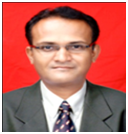
Mr. Nilesh Rokade, M.Sc. (Env.Sc.) – North Maharashtra University, Jalgaon, Maharashtra. Designation: Assistant Professor |
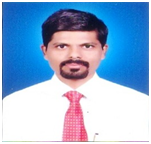
Dr. Prashant C. Andage, M.Sc. (Env.Sc.) – S.R.T.M University, Nanded Maharashtra. Designation: Assistant Professor |
Faculty in Chemistry
|
Mr. Satish B. Manjare, M.Sc. (Chemistry) M.Ed – Solapur University, Solapur, Maharashtra. |
|
Mr. Kundan S. Jangam, M.Sc. (Chemistry) – Savitribai Phule Pune University, Pune, Maharashtra. |
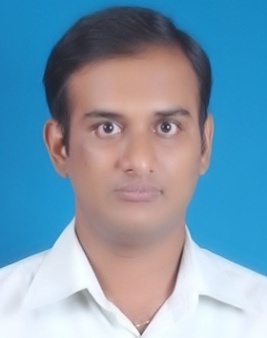
Mr. Shirin S. Limaye, M.Sc (Chemistry) – University of Mumbai, Gogate Jogalekar College, Ratnagiri, Maharashtra. |
|
Mr. Vijay L. Gurav, M.Sc. (Chemistry) – University of Mumbai, Mumbai, Maharashtra. |
Faculty in Oceanography (Zoology):
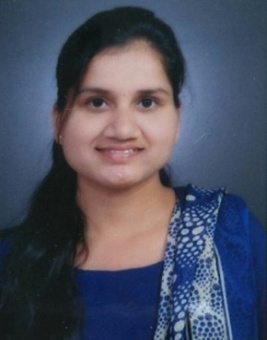
Miss. Sonali M. Mestry. M.Sc. (Zoology) – University Of Mumbai, Mumbai, Maharashtra. |
Visiting Faculty
Besides the regular Faculty at the Ratnagiri Sub-Centre, the University of Mumbai encourages Teachers and Professionals representing regional Institutions/ Colleges/ Industries from Ratnagiri and Sindhudurg Districts as also those representing its own Post-graduate Departments located at Vidyanagari Campus, to serve as Visiting Faculty. Some of the Alumni of Ratnagiri Sub-Centre are also provided the opportunity.
The details of visiting Faculty are provided below
VISITING FACULTY FOR UNIVERSITY DEPARTMENT OF ORGANIC CHEMISTRY
- Honorary Faculty
Besides the regular Faculty at the Ratnagiri Sub-Centre, the University of Mumbai encourages Teachers and Professionals representing regional Institutions/ Colleges/ Industries from Ratnagiri and Sindhudurg Districts as also those representing its own Post-graduate Departments located at Vidyanagari Campus, to serve as Honorary Faculty. The details of visiting Faculty are provided below:
- Honorary Faculty in Chemistry
Prof. Dr. V.R. Ajgaonkar, Professor & Head, Department of Chemistry,Santacruz (E)
Prof. A.K.Srivastava, Professor of Chemistry & University Department of Chemistry,Santacruz (E)
Prof. Dr. M.M.V. Ramanna, University Department of Chemistry,Santacruz (E)
Dr. Anil V. Karnik, University Department of Chemistry,Santacruz (E)
Dr. G.A. Meshram, University Department of Chemistry,Santacruz (E)
Dr. S.S. Garje, University Department of Chemistry,Santacruz (E)
Dr.Vikas Vaidya, Ramnarayan Ruia College, Matunga, Mumbai.
Dr. Meena B. Mehta, 41, Megha CHS,Malad.Mumbai-97.
Dr.Malushthe, Sathe College, Mumbai –57.
Dr.Bhanu Raman, K.J.Somiya College, Mumbai-77.
Mr.Prabhakar Parab, Manager, Auchtel Pvt. Ltd.Ratnagiri.
Mr.Vaze, Auchtel Pvt. Ltd.Ratnagiri.
Dr.Satpute, Birla College, Kalyan.
Dr. Sunil Purohit, Department of Chemistry,Jaihind College, Churchgate.
Dr.S.H.Mashruqui, University Department of Chemistry,Santacruz (E)
Dr.V.R. Patil, University Department of Chemistry,Santacruz (E)
Dr. S.R.Lokhande University Department of Chemistry,Santacruz (E)
Dr.Rajesh Kamble, University Department of Chemistry,Santacruz (E)
Dr. B.H.Mehta, University Department of Chemistry,Santacruz (E)
Dr. M.S.Wadia, University Department of Chemistry,University of Pune.
Dr. Kashid, Institute of Science, Mumbai-32.
Mrs. Ruby Kuriakose, C.H.M College, Thane.
Mrs. Pratima Das, C.H.M College, Thane.
Mr. D.D.Joshi, Finolex College Ratnagiri.
Dr. M.M.V.Ramanna,University Department of Chemistry,Santacruz (E)
Prof. Dr. M.B. Deshmukh, Professor & Head,University Department of Chemistry, Shivaji University,Kolhapur.
VISITING FACULTY FOR UNIVERSITY DEPARTMENT OF ENVIRONMENTAL SCIENCES
- Honorary Faculty in Environmental Sciences
Mr.Nagesh Daptardar, Dept. of Botany, S.H.Kelkar College, Devgad.
Dr.B.L.Chavan, University Department of Environmental Sciences, University of Aurangabad.
Dr.Ravindra Gavali, University Department of Environmental Sciences, University of Solapur, Solapur.
Dr.Ravindra Jaybhaye, University Department of Geography, University of Pune, Pune-07
Dr.Jyotiram More, Department of Geography,B.J.S.College,Pune.
Dr.Avinash Kadam, Swami Ramanand Teerth University Nanded.
Mr.Yogesh Lolage, Swami Ramanand Teerth University Nanded.
Mr.Ranpise Ravindra S. University Department of Environmental Sciences, University of Pune, Pune-07
Dr.B.B.Sharma, Vaze Kelkar College, Mulund .
Dr. R.G. Sapre, Head, Department of Mathematics, Gogate College.
Mr. Vishwanath Gurav, Department of Mathematics, Gogate College
Dr. Vijay Mendhulkar, Institute of Science , Mumbai.
Dr.Vilas Ugle, New Arts Commerse and Science College, Parner.
Dr.Praveen G. Saptarshi,Professor & Head, University Department of Environmental Sciences, University of Pune, Pune-07.
Besides the above Honorary Faculty, some of the Alumni of University Department of Environmental Sciences, University of Mumbai, are also providing their expertise by delivering lectures for M.Sc. Students.
Research & Extension Activities
The wood-based handicraft items of Konkan region, particularly the Sindhudurg District of Maharashtra, India are well appreciated all over and have earned a special  recognition for the super craftsmanship of the artisans. The skills of the artisans are basically traditional and have enough scope for its development. But lack of proper guidance and assistance the total sector is now on the way to lose its credential. On the contrary, the handicrafts sector is also playing major role in State Revenue Collection but appropriate action towards promotion of this sector has not been considered on priority basis. The sector has enough scope to generate sufficient employment opportunities, not only in the area of wood based but also in case of bamboo-based crafts.
recognition for the super craftsmanship of the artisans. The skills of the artisans are basically traditional and have enough scope for its development. But lack of proper guidance and assistance the total sector is now on the way to lose its credential. On the contrary, the handicrafts sector is also playing major role in State Revenue Collection but appropriate action towards promotion of this sector has not been considered on priority basis. The sector has enough scope to generate sufficient employment opportunities, not only in the area of wood based but also in case of bamboo-based crafts.
 Some of the Faculty Members of Ratnagiri Sub-Centre have executed major Research Projects with financial assistance from various Funding Agencies such as Ministry of Environment and Forests, Govt. of India (MoEF, New Delhi), D.R.D.A., Govt. of Maharashtra, D.C.(Handicraft), Govt. of India.
Some of the Faculty Members of Ratnagiri Sub-Centre have executed major Research Projects with financial assistance from various Funding Agencies such as Ministry of Environment and Forests, Govt. of India (MoEF, New Delhi), D.R.D.A., Govt. of Maharashtra, D.C.(Handicraft), Govt. of India.
The Faculty Members of Ratnagiri Sub-Centre have been involved in various research and extension activities in Konkan region. A few Non-Governmental Organisations are deriving benefits of expertise available at Sub-Centre. Konkan Bamboo and Cane Development Centre (KONBAC) along with the technical inputs from Faculty Members of Ratnagiri Sub-Centre, University of Mumbai has initiated community based bamboo development programme. This work involving rural communities relates to (a) development of a community-based bamboo demonstration model in addressing poverty alleviation and environmental protection; and (b) improving the institute capacity relevant to bamboo plantation and production, and to enhance the bamboo plantation and utilization for poverty alleviation and environmental protection in Konkan region through technical consultation, training and demonstration. The photographs shown here depict some of the bamboo based activities conducted in the said Project.
Work relating to conservation and development of sacred groves, medicinal plant-based community development and agro-biodiversity conservation is also underway, with active involvement of M.Sc. Students of Ratnagiri Sub-Centre.
Courses
M. Sc. ENVIRONMENTAL SCIENCE
M.SC. DEGREE (BY PAPERS) IN ENVIRONMENTAL SCIENCES
Scope
The Syllabus of the Course covers topics such as Basic Ecology, Environmental Geography, Basic Statistics, Air and Water pollution, Terrestrial pollution, Pollution monitoring and control, Industrial hygiene and toxicology, Environmental management aspects to name a few.
Eligibility
M.Sc.:
Candidates with the following combination of subjects will be eligible for admission to the M.Sc. Degree Course in Environmental Sciences:
- The Bachelor’s Degree in Faculty of Science in the Subjects of Life Sciences, Botany, Zoology, Microbiology, Environmental Sciences, Biochemistry, Geology, Geography, Nautical Science, Agricultural Sciences of this University or equivalent Degree of recognised Universities.
OR
- The Bachelor’s Degree in any other Subject with Biological Sciences as one of the Subjects of F.Y., S.Y. of the Degree Course of this University or of recognised Universities.
The Candidates will be entitled for admission to the M.Sc. Degree Course in Environmental Sciences only after passing the written test and viva/ interview to be conducted by the Ratnagiri Sub-Centre of the University.
The Programme for the written test and the interview will be as per the notification to be issued by the University.
M.Phil. & Ph.D.:
Candidates for being eligible for admission to the M.Phil. and Ph.D. Degree Courses in Environmental Sciences must have passed the M.Sc. Degree Course in Environmental Sciences.
M.SC. CHEMISTRY
M.SC. DEGREE (BY PAPERS) IN CHEMISTRY
Scope
In the first year of the Course, the Syllabus possesses four Papers of Theory and four Papers of Practicals each in the Subjects of Physical Chemistry, Inorganic Chemistry, Organic Chemistry, and Analytical Chemistry.
In the second year of the Course, the Syllabus possesses four Papers of Theory and four Papers of Practicals that deal independently with the Subjects of Organic, Inorganic, Physical and Analytical Chemistry.
Eligibility
M.Sc.:
Candidates with the following combination of subjects will be eligible for admission to the M.Sc. Degree Course in Chemistry:
The Bachelor’s Degree in Faculty of Science in Chemistry as a major Subject (with 6 or 3 Units) of this University or equivalent Degree of recognised Universities.
The Candidates will be entitled for admission to the M.Sc. (by Papers) Degree Course in Chemistry purely on Merit (i.e., marks obtained by the Candidate during his/ her B.Sc. Degree with Chemistry as a major Subject – 6 or 3 units).
M.Phil. & Ph.D.:
Candidates for being eligible for admission to the M.Phil. and Ph.D. Degree Courses in Chemistry must have passed the M.Sc. Degree Course in Chemistry.
M.SC. DEGREE (BY PAPERS) IN ZOOLOGY (OCEANOGRAPHY)
Scope
In the first year of the Course, the Syllabus possesses four Papers of Theory and four Papers of Practical’s each in the Subjects of Zoology-
Non- Chordates, Chordates and their Phylogeny,
Biochemistry and Metabolism,
Genetic Evolution and Developmental Biology and
Tools and Techniques in Biology.
In the second year of the Course, the Syllabus possesses Two Papers of Theory and Two Papers of Practical’s that deals with the Subject of Biotechnology-
Basic Industrial And Environmental Biotechnology
Genetic Engineering Techniques And Its Applications, Genome Management,
Manipulations, Regulations and Patents in Biotechnology.
And in Addition to this Two Papers of Theory and Two Papers of Practical’s that deals with the Subject of Oceanography-
General, Physical, Chemical and Biological Oceanography
Planktology, Fish, Fishery Science And Aquaculture
Eligibility
M.Sc.:
Candidates with the following combination of subjects will be eligible for admission to the M.Sc. Degree Course in Zoology (Oceanography) :
The Bachelor’s Degree in Faculty of Science in Zoology as a major Subject (with 6 or 3 Units) of this University or equivalent Degree of recognised Universities.
The Candidates will be entitled for admission to the M.Sc. (by Papers) Degree Course in Zoology (Oceanography) purely on Merit (i.e., marks obtained by the Candidate during his/ her B.Sc. Degree with Zoology as a major Subject – 6 or 3 units).
M.Phil. & Ph.D.:
Candidates for being eligible for admission to the M.Phil. and Ph.D. Degree Courses in Zoology (Oceanography) must have passed the M.Sc. Degree Course in Zoology (Oceanography).
Fee Structure
Under Construction…
Application Forms
General Instructions
The Application Forms for seeking admission for M.Sc. (by Papers) Degrees in Organic Chemistry and Environmental Sciences (for both, admission by Merit in case of Organic Chemistry and by Entrance Examination in case of Environmental Sciences) will be made available to Candidates at Ratnagiri Sub-Centre, University of Mumbai, P-61, M.I.D.C. Mirjole, Ratnagiri 415639.
Instructions to Applicants
· Admissions are strictly on Merit.
· The Application Form, complete in all respects is required to be submitted to the Coordinator, Ratnagiri Sub-Centre, University of Mumbai, P-61, M.I.D.C. Mirjole, Ratnagiri 415639 on or before the last date for submission of Application Forms (as specified at the time of collection of Application Form by the Applicant).
· All the enclosures to the Application Form (such as Mark Sheets of First, Second and Third Year B.Sc. Examinations/ School leaving Certificate and/ or those documents required and as specified in the Application Form) must be attested by appropriate authority, before submission to Coordinator, Ratnagiri Sub-Centre, University of Mumbai.
· The Originals of the said documents would be retained by the Administrative Office of Ratnagiri Sub-Centre of University of Mumbai only to be returned to the concerned Students on specified dates (after the process of Admission is completed).
· Admissions of SC/ ST/ DTNT/ OBC Candidates for M.Sc. Degree are as per rules. In such cases, documents enclosed with Applications Forms must include Caste Certificates duly certified by a competent authority. In case of OBC Students, the requisite Creamy Layer Certificate issued by a competent authority for the current financial year should be enclosed along with the Application Form. Applications without the Creamy Layer Certificate will not be accepted.
· Graduates of Universities other than the University of Mumbai are also required to attach a Provisional Eligibility Certificate from the University of Mumbai. This could be obtained from the Eligibility Section, Ambedkar Bhavan, University of Mumbai, Vidyanagari, Santacruz (E), Mumbai 400098.
· In case of M.Sc. Degree (by Papers) in Organic Chemistry, the Candidates will be admitted based on the marks secured at B.Sc. level. The list of selected candidates would be displayed on the Notice Board of the Ratnagiri Sub-Centre, University of Mumbai on the date mentioned at the time of submission of the Application Form. In case of M.Sc. Degree (by Papers) in Environmental Sciences, the Candidates will have to undergo an Entrance Examination (to be conducted by the University of Mumbai) at Ratnagiri Sub-Centre, University of Mumbai, P-61, M.I.D.C. Mirjole, Ratnagiri 415639 on the date prescribed at the time of submission of Application Form.
· The successful Candidates will then be interviewed by a Panel of Experts after which the Merit list would be prepared based on cumulative performance of the Candidate (in B.Sc. Examination, Entrance Examination and his/ her performance in the Interview).
· If the Candidates (whose name appears in the Merit List) fail to secure admission at Ratnagiri Sub-Centre within the prescribed date and time, their names would be omitted from the next List of Candidates and their claim for admission would not be considered.
Seat Allocation
Seat Allocation Structure
The total number of seats allotted for M.Sc. Degree Course at Ratnagiri Sub-Centre of the University of Mumbai is as follows:
| M.Sc. Degree in Environmental Sciences |
20 |
| M.Sc. Degree in Chemistry |
60 |
| M.Sc. Degree in Oceanography (Zoology) |
15 |
| Total no. of seats allotted |
95 |
Out of 40 seats allotted for M.Sc. Degree in Chemistry, 10 each would be offered to the M.Sc. Degree in Organic, Inorganic, Physical and Analytical Chemistry.
Candidates from Universities other than University of Mumbai
Only 2 per cent of the total Seats (M.Sc. Degree Course in Chemistry and M.Sc. Degree Course in Environmental Sciences, M.Sc. Degree Course in Oceanography i.e., total 95 seats) offered to the Students obtaining B.Sc. Degree from Universities other than Mumbai University. Such Candidates are required to submit to the Ratnagiri Sub-Centre, University of Mumbai, Eligibility Certificate from their respective Universities.
Seats reserved for Candidates belonging to Backward Classes
Certain number of Seats is offered to the Candidates belonging to backward communities (SC/ ST/ OBC/ VJNT/ SBC) and the admission procedure for these Candidates would be followed as per the rules of the Government of Maharashtra.
Distance Courses
COURSES
About Distance Education
Distance Education is a distinct approach to impart education to learners who are removed in space and / or time from the teachers or the teaching institution on account of economic, social and consideration. A need for such an approach was felt by the University of Mumbai and hence it established the Directorate of Correspondence Courses in the year 1971-72. In the year 1993, the Directorate of Distance Education was upgraded as Institute of Distance Education. It thus acquired a status as a University Institution.
The total number of students who registered for different courses in the Institute was 61,000 during the academic year 2006-2007. Only Indian citizens residing in India are eligible for Admission.
Special Features
- Curricular content, mode of examination and the degree to be awarded are the same as applicable to the colleges affiliated to the University of Mumbai.
- UGC NAAC has awarded 5 STAR rating to the University of Mumbai Printed study materials are available in 184 subjects in English (also in Marathi in selected subjects only)
- INTERNET & IVRS: – The information about admission, date of submission of exam form, exam time table, dates, centers, exam results and guidance lectures is released on Internet Website http//www.mu.ac.in
- Audio-Visual Centre located at Vidyanagari provides for listening and viewing of
- Curriculum based Audio-Video cassettes.
- Around every year 700 students have gone abroad for seeking higher Education. All three toppers (First, Second and Third) of M.Com. Exam. of April, 2003 , April 2005 & also two toppers (First & third) of M.Com. Exam. in April, 2004 were from IDE.
- Library: Independent one Library & two Reading Room facilities for the IDE students with home lending facility. 36 thousand books are available
- Personal Contact Programmes (P.C.P.): Guidance lectures are conducted every year at about 60 centers in Mumbai and around.
System of Examination
Examinations are held each year for all courses. Learners who join in June-August are allowed to appear for the Examination in March/April of the following calendar year. Examinations are conducted at various centers in Greater Mumbai, Thane, Raigad, Ratnagiri and Sindhudurg Districts only. The Examinations are conducted by Examination unit of I.D.E. for F.Y. & S.Y.B.A./B.Com. Courses and Examination Section of the University for T.Y.B.A./B.Com., M.A., M.Sc.(Mathematics), M.Com., P.G.D.F.M. & P.G.D.O.R.M. in the month of March-April/May. Supplementary Examinations are also conducted for Ex-students of our Undergraduate and Postgraduate Courses except PGDFM & PGDORM Courses during the month of October/November.
Contact
For further details, please write to or contact:The Professor-Cum-Director orthe Public Relations-Cum-Publicity OfficerInstitute of Distance EducationUniversity of Mumbai, Vidyanagari CampusSantacruz (E), Mumbai 400098.(BEST Bus Route Nos. from Santacruz (E) & Kurla (W) – 313 & 318)Tel.: +91 22 26523048Website: www.mu.ac.in
Information of Courses
|
NO. |
COURSE |
DURATION |
ELIGIBILITY |
| 1. | B.A. (History, Political Science, Sociology, Economics, Psychology, Commerce, Education, English, Marathi, Hindi, Urdu) |
3 Years | H.S.C.(XII Std.) Or Equivalent Exam. Passed for admission to F.Y.B.A. |
| 2. | B.Com (Accounts OR Management Group) |
3 Years | H.S.C (XII Std) Commerce or Equivalent Exam. Passed for admission to F.Y.B.Com. |
| 3. | M.A. .(History, Political Science, Sociology, Economics, English, Marathi, Hindi,Urdu) | 2 Years | Any Bachelor Degree from a Statutory University. |
| 4. | M.A. (Education) |
2 Years | B.Ed / B.A.(Education) Degree |
| 5. | M.Com (Accounts OR Management Group) |
2 Years | B.Com / BMS Degree |
| 6. | MA/M.Sc. (Mathematics) |
2 Years | B.A./ B.Sc with minimum 2 papers in Mathematics of University of Mumbai or at least 3 papers in Mathematicss from other University. |
| 7. | PGDFM/PGDORM ( Diploma in Financial Management & Diploma in Operational Research for Management) |
2 Years | Graduate in any faculty with 2 years work experience in any Organization or must have a recognized professional qualification with at least five year’s professional experience. Defence persons who are not degree holders are admitted to the course. |
Alumni
| ENVIRONMENTAL SCIENCES | |
| No | Name of Student |
| 1 | Agashe Medha Gajanan |
| 2 | Bhosale Pournima Vishnu |
| 3 | Dhopate Nandini Mahadev |
| 4 | Hodawadekar Jyoti Shantaram |
| 5 | Jadhav Arun Dnyandeo |
| 6 | Kadam Jitendrakumar Eknath |
| 7 | Karlekar Swapnil Deepak |
| 8 | Kavitake Swapnali Prakash |
| 9 | Khan Mushtak Mustafa Bahistun |
| 10 | Lele Madhusudan Manohar |
| 11 | Malvankar Nilesh Bhaskar |
| 12 | Naikwade Nasir Sikandar |
| 13 | Paleripoil Saijitha Ashokan |
| 14 | Pangradkar Chandrakala Ganesh |
| 15 | Pawar Dhanashri Shankar |
| 16 | Sakhalkar Priya Prabhat |
| 17 | Sawant Namrata Narendra |
| 18 | Sirpotdar Poonam Shashishekhar |
| 19 | Walekar Sagar Balasaheb |
| 20 | Watkar Snehal Sudhakar |
| ORGANIC CHEMISTRY | |
| No | Name of Student |
| 1 | Bokade Udaykumar Marutirao |
| 2 | Dorle Hemant Sanjeevan |
| 3 | Joshi Prajakta Dilip |
| 4 | Kalekar Varsha Vilas |
| 5 | Khot Nilesh Balasaheb |
| 6 | Mohite Sandip Krishnarao |
| 7 | Mujawar Sarafaraj Amanulla |
| 8 | Nagale Yogita Sakharam |
| 9 | Petha Narendra Hanumant |
| 10 | Patil Ranjit Shivajirao |
| 11 | Patil Sheetal Sahebrao |
| 12 | Patil Yuvraj Mahipati |
| 13 | Pawale Subrao Laxman |
| 14 | Salunkhe Dheeraj Narayan |
| 15 | Salvi Prathamesh Pradeep |
| 16 | Samangadkar Yatin Shashikant |
| 17 | Sawant Sandesh Yashwant |
| 18 | Vadkar Ashish Gajanan |
| 19 | Zore Yogesh Yashwant |
PLACEMENT
During the last one year or so, the Ratnagiri Sub-Centre has been approached by several institutions/ organisations as well as private sector companies for seeking nominations of Students who could be absorbed based on their suitability.
It is noteworthy that this year, about 25 per cent of the students of Ratnagiri Sub-Centre (from both the Departments, i.e., Organic Chemistry and Environmental Sciences) have secured jobs (or associateship for pursuing further education) based on their merits, in the following esteemed Organisations/ Institutions:
Gharda Chemicals Pvt. Ltd.
Lote M.I.D.C.
Tehsil Khed, Ratnagiri
Maharashtra.
Finolex Industries Pvt. Ltd.
Pawas Road
Ratnagiri District
Maharashtra.
Auchtel India Pvt. Ltd.
Mirjole M.I.D.C.
Ratnagiri District
Maharashtra 415639.
Centre for Indian Bamboo Research and Training
Parashuram Complex III floor
Kudal Tehsil, Sindhudurg District
Maharashtra.
University Department of Life Sciences
University of Mumbai, Vidyanagari
Santacruz (E), Mumbai 400098.
Institute of Science
15, Madam Cama Road
Mumbai 400032, Maharashtra.
National Environmental Engineering Research Institute (NEERI)
Zonal Office Mumbai
Dr. Annie Besant Road, Worli
Mumbai 400025, Maharashtra.
Extracurricular
EXTRACURRICULAR ACTIVITIES
Arranging Educational Excursions/ Exposure Visits
As a part of the Final Year M.Sc. Programme, both in Chemistry and Environmental Sciences (though optional), Educational Excursions/ Exposure visits for M.Sc. Students are arranged by Ratnagiri Sub-Centre of the University of Mumbai.
During the Academic Year 2006-2007, Environmental Sciences Students were exposed to one of the unique conservation areas of our Country – the Jim Corbett National Park, besides the biodiversity-rich Himalayan region of Nainital. Similarly, the Chemistry Students were taken to Lote Industrial Estate, MIDC, Lote in Khed Tehsil, as also within the MIDC Industrial area of Mirjole in Ratnagiri.
Placement
PLACEMENT OF STUDENTS
During the last few years, the Ratnagiri Sub-Centre has been approached by several institutions/ organisations as well as private sector companies for seeking nominations of Students who could be absorbed based on their suitability.
It is noteworthy that an average of over 60 per cents of the students of Ratnagiri Sub-Centre (from both the Departments, i.e., Chemistry and Environmental Sciences) secure jobs (or associateship for pursuing further education) based on their merits, in various Organisations/ Institutions, some of which are highlighted below:
Gharda Chemicals Pvt. Ltd.
Lote M.I.D.C.
Tehsil Khed, Ratnagiri
Maharashtra.
Finolex Industries Pvt. Ltd.
Pawas Road
Ratnagiri District
Maharashtra.
Auchtel India Pvt. Ltd.
Mirjole M.I.D.C.
Ratnagiri, Maharashtra 415639.
Centre for Indian Bamboo Research and Training
Parashuram Complex – III floor
Kudal Tehsil, Sindhudurg, Maharashtra.
University Department of Life Sciences
University of Mumbai, Vidyanagari
Santacruz (E), Mumbai 400098.
Institute of Science
15, Madam Cama Road
Mumbai 400032, Maharashtra.
National Environmental Engineering Research Institute (NEERI)
Zonal Office – Mumbai
Dr. Annie Besant Road, Worli, Mumbai 400025.
During the last academic year (2006-2007), the success rate of placement was much higher than expected, the highlights of which are provided under “Awards and Achievements” section of the Ratnagiri Sub-Centre.
Press Release
- Admission Notification 2023-2024
- Advertisement for the project fellow position
- Chemistry 2023-2024
- Environmental Sciences 2023-2024
- Zoology 2023-2024
- Selected candidate for the post of Field Assistant (F.A.)
- क्षेत्रीय सहाय्यक या पदभरतीसाठी मुलाखतीकरिता प्राप्त अर्जांन्वये उमेदवारांची यादी
- Advertisement for the post of Field Assistant (Temporary) for the Major Research Project.
- List of selected candidates through interviews for admission to Ph.D. in the Department of Envirnmental Science
- Notification of Ph.D. Interview
- Notification of Ph.D. admission
- First Merit list of Chemistry Admission 2022-23 of Ratnagiri Sub-Campus
- List of Selected Candidate for the Post Field Assistant
- List of Selected candidates for the Post of Scientific Assistant and Field Assistant
- List of Selected candidates for the Post of Scientific Assistant and Field Assistant
- वैज्ञानिक सहाय्यक व क्षेत्रीय सहाय्यक या पद भरतीसाठी मुलाखतीकरिता प्राप्त अर्जांन्वये उमेदवारांची यादी व इतर तपशील
- रत्नागिरी उप परिसर, मुंबई विद्यापीठ वैज्ञानिक सहाय्यक (Scientific Assistant), क्षेत्रीय सहाय्यक (Field Assistant) या पदांसाठी पात्र उमेदवारांकडून अर्ज मागविण्यात येत आहेत
- NEW COURSES
- नियमित तत्त्वावरील एम.एस्सी. रसायन शास्त्र, पर्यावरण शास्त्र, सागरशास्त्र (प्राणिशास्त्र) / एम. एस. डबल्यू या अभ्यासक्रमाच्या सत्र १ ते ४ चे पुनर्परीक्षाथींनी उन्हाळी २०२१ या हंगामाच्या परीक्षेला उपस्थित राहण्याच्या अनुषंगाने परीक्षा अर्ज सादर करावयाच्या कार्यवाहीबाबत
- List of selected candidate for the Post of Field Assistant
- List of selected candidates under SAMP project
- Ratnagiri Sub Campus List of eligible candidates for interview
- Interview
- Advertisement for Project Fellow positions on the MPCB sponsored project entitled “Ambient Air Quality Monitoring Stations under NAMP at Ratnagiri”.
- Result of Ph. D. Interview conducted at Ratnagiri Subcentre, University of Mumbai on 17/05/2019
Scholarships
The following scholarships and welfare schemes (at Post Graduate level) are offered to the students by the University of Mumbai.
1. Financial Assistance to the Students representing Backward Classes
A provision of Rs. 10,00,000.00 (Rupees Ten Lakhs) has been year-marked to render Financial Assistance to the students belonging to the Backward Class (S.C., S.T., N.T., D.T., and S.B.C.) studying at various Departments of the University. Application forms are available with the Head of the Department at the time of admission. Students, whose parents annual income is less than Rs. One lakh are eligible to get benefit of this scheme. The four categories of the students covered the scheme are [1] students enrolled in self supporting courses staying in Hostel – Rs.9,000.00 maximum and not-staying in Hostel Rs.7,000/-max. (2) Students in Regular courses staying in Hostel – Rs.4,000.00 max. & not staying in Hostel Rs. 2,000.00 maximum.
From the year 2005-06 it is decided to give a research fellowship of Rs. 2000.00 per month to the Backward Class Students registered at the University Departments for the Ph.D. Degree (full time). An amount of Rs. 2,40,000.00 has been year-marked, out of the provision of Rs, 10,00,000.00 for 10 fellowships.
The application should be forwarded through the Head of the Department to the Director of Students Welfare. The last date to submit the Application Form is September 15 of every year.
2. Financial Assistance to the Needy Students
A provision of Rs. 1,00,00,000.00 (Rupees One Crore) as corpus fund has been made from the year 2004-05 to render Financial Assistance to needy students belonging to the economically backward class studying at various affiliated Colleges/ Institutions/ Departments of the University. Application Forms are available at the office of Principal/Dean/ Head of the Department. Only two applications on merit of the needy students from each College/Institution/Department are invited for this Scheme. Students whose parents annual income is less than Rs. 75,000.00 are eligible to get the benefit of the Scheme.
The application should be forwarded through the Principal/Director & Head of the Department to the Director of the Students Welfare, University of Mumbai.
3. Book Bank Scheme
Every year the University renders financial assistance to the affiliated Colleges to run the Book Bank scheme for the Backward Class students. The Director, Students Welfare sends a circular to all the Colleges demanding the application from the Principal to run this scheme. Depending upon the number of backward class students in the college and the budgetary provision made for the scheme after calculation a specific amount per student is given to the college.
From the year 2004-05, it has been decided that this scheme introduced to the University Departments for the benefit of the Post-Graduate Backward Class Students.
4. Group Insurance Scheme
From the year 2001-2002 University has introduced a Group Insurance Scheme known as YUVA RAKSHA for students from the affiliated colleges/Institutions and University Departments in collaboration with National Insurance Company Limited. YUVA RAKSHA covers Colleges and University students under a Group Personal accident policy coverage including accidental death, permanent disability or hospitalization expenses arising out of accident are covered under the policy. Participation in adventurous sports and hazardous activities has to be with prior consent of the college/department & Institute/ authorities. 24 hours coverage is given within and outside India for a period of one year.
The Director, Department of Students Welfare sends a circular in the beginning of the year to all the affiliated colleges of the University requesting them to implement the scheme at college and department level. Principals of the colleges will implement the scheme at their level and he/she will sign the Memorandum of Understanding with the National Insurance Company Limited. At the Departments, the Head of the Department will sign and implement the scheme while the Institute Directors will be implementing the scheme and also be its signing authority. Premium rates are Rs. 20.00 per annum to cover the scheme of Rs. 50,000.00 while it will be Rs. 37.00 to cover the Insurance amount of Rs. 1,00,000.00. Principals/ Head of the Institutions and Departments are supposed to collect the premium at the time of admission and send it directly along with the list of students to Shri. Girish Narwekar, Division No. X, Resham Bhavan, 6th floor, 78, Veer Nariman Road, Mumbai 400020, Maharashtra State. Tel. No. 22043055/ 22048058/ 22047193; Fax No.: 22845081.
5. Government Scholarships
Following Government Scholarships are also made available to the student studying at University Affiliated colleges/Institutions and Departments:
- Government of India scholarship/ freeship to C/ST/DT/NT/SBC category students. Students whose parents income is less than Rs. One lakh per annum an eligible to get the freeships Rajarshi Shahu Maharaj Merit Scholarship to 100 students for higher education within India for eg. IIM/IIT etc.
- Rajarshi Shahu Maharaj Merit Scholarship to 10 students for UG/PG [8 + 2] students at aboard.
A detailed list of above-mentioned Scholarships which are offered every year can be obtained from the Scholarships Section, 1st floor, Mahatma Jyotiba Phule Bhavan, Vidyanagari Campus, Santacruz (E), Mumbai 400098.
Contact Us
Director
Ratnagiri Sub-Centre
University of Mumbai
P-61, M.I.D.C., Mirjole
Ratnagiri 415639
Maharashtra, India
Tel.: + 91 7249009826
Fax:
E-mail: ratnagirisubcentre@old.mu.ac.in & ratnagirisubcentar@gmail.com
Website: www.mu.ac.in

